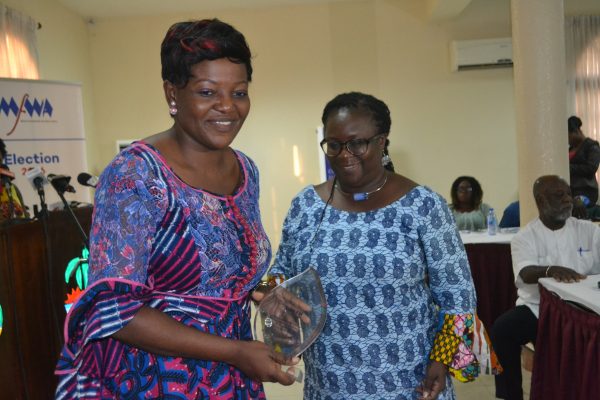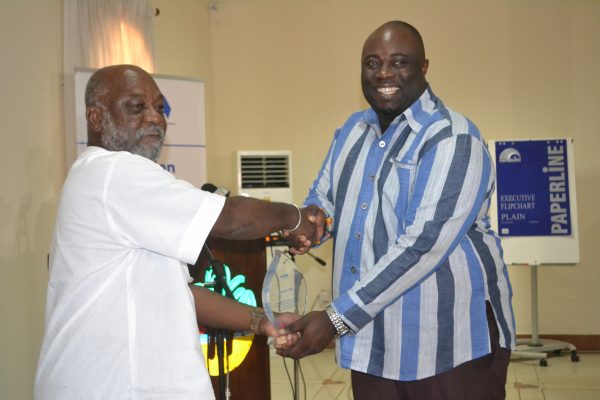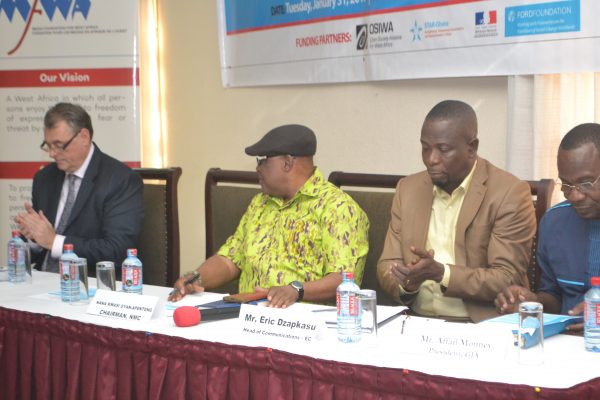January 2017, witnessed a number of major press freedom and freedom of expression developments in West Africa – from a stormy political transition in The Gambia that saw the exit of West Africa’s King of Impunity,’ to a massive crackdown on journalists by Nigerian security forces, and the lifting of media sanctions in Benin.
The most improbable happened in The Gambia where a memorable political drama unfolded climaxing with a momentous end to President Yahya Jammeh’s 22 years of tyranny, brutal human rights violations and agonising culture of silence.
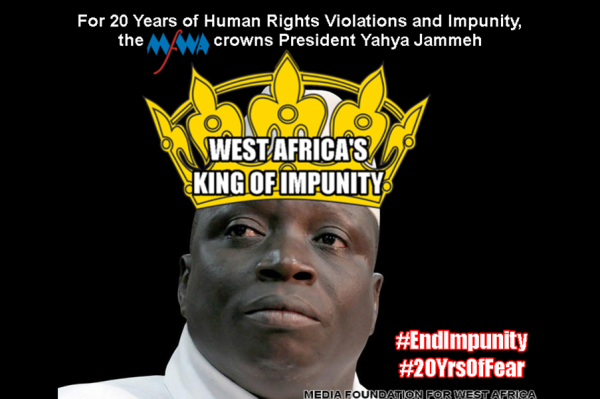 After suffering an unexpected electoral defeat on December 1, 2016, Jammeh, who had been crowned ‘West Africa’s King of Impunity’, for supervising a regime that overtly perpetrated human rights violations, made several attempts to hang on to power. He initially conceded defeat after the declaration of the results but renounced his concession a week later, rejecting the results and calling for fresh polls.
After suffering an unexpected electoral defeat on December 1, 2016, Jammeh, who had been crowned ‘West Africa’s King of Impunity’, for supervising a regime that overtly perpetrated human rights violations, made several attempts to hang on to power. He initially conceded defeat after the declaration of the results but renounced his concession a week later, rejecting the results and calling for fresh polls.
The West Africa inter-governmental body, ECOWAS, backed by the African Union and the UN, insisted Jammeh should respect the verdict of the Gambian people and leave power. Jammeh was eventually compelled to leave power on January 21, when he left for exile in Equatorial Guinea.
President Jammeh’s antagonism towards the media in The Gambia was so pronounce during his 22-year rule. Even after defeat in the polls on December 1, 2016, the ex-President proved he was incurably hostile to press freedom and freedom of expression as he continued with his acts of violations.
On January 9 for example, the licenses of four major radio stations were revoked by the Jammeh regime without explanation. The four affected radio stations, namely Hilltop Radio, Afri Radio, Taranga FM and Paradise FM were the leading local radio stations providing coverage on the political controversy at the time.
Exactly a week after the shutdown of the four local radio stations, seven foreign journalists were deported on January 16 upon their arrival at the main airport in the capital Banjul. The deported journalists were from the regional bureau of CCTV in Kenya, one photojournalist from AFP and two journalists on assignment for the Sweden-based Digital journalism project, Blank Spot.
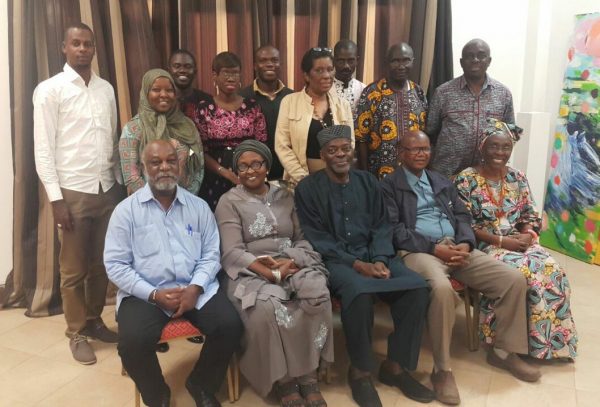
Already, the new President, Adama Barrow, has promised to undertake major reforms that will ensure respect for the rights of all persons. Addressing the nation on January 26 after his return from Senegal, where he had been sworn in while Jammeh was still hanging on to power, Mr. Barrow said he would ensure press freedom in the country.
The Media Foundation for West Africa (MFWA) has already held discussions with Gambian media leaders and experts on challenges facing the media, status of impunity for crimes against journalists under the Jammeh regime and how to confront those media challenges in the Post-Jammeh era.
Press Freedom Comes Under Siege in Nigeria
 In January, the police in Nigeria, on different occasions arrested and detained a number of journalists prompting public outrage and petitions to President Muhammadu Buhari urging him to help bring the situation under control.
In January, the police in Nigeria, on different occasions arrested and detained a number of journalists prompting public outrage and petitions to President Muhammadu Buhari urging him to help bring the situation under control.
On January 5, police in the Southern state of Akwa Ibom arrested, Nsibiet John, a journalist with a local newspaper, The Ink. The journalist was kept in police cell overnight before he was arranged before a Magistrates’ Court on charges of criminal defamation and sedition. He was subsequently granted bail to reappear before the Court on February 13.
On January 6, another journalist in the same state, Jerry Edoho, was arrested by police and detained for three days in detention at the Forces Headquarters in Abuja. He was accused of a false publication on Facebook. The journalist was subsequently granted bail on January 9.
A week later on January 13, police arrested Desmond Utomwen, publisher of FreshNews, an online journal, following a defamation complaint by a custom official. The police also seized files, the publisher’s laptop and his mobile phone, before taking him away to the Force Criminal Investigation and Intelligence Department, in the federal capital, Abuja, for questioning. He was released later in the day.
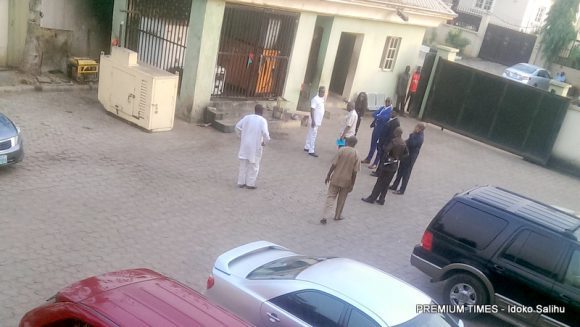 On January 19, police in Abuja, raided the Abuja offices of the influential news website, Premium Times and arrested the publisher, Dapo Olorunyomi and the publication’s judiciary correspondent, Evelyn Okakwu. The police also conducted a thorough search at the offices without a search or arrest warrant. According to Nigerian police sources, the office raid and arrest of the publisher and journalist followed defamation complaints lodged by lawyers for the Chief of Army Staff, Tukur Buratai. The incident came days after the paper had refused a written request from the Nigerian Army to retract news stories about the Army and its operations.
On January 19, police in Abuja, raided the Abuja offices of the influential news website, Premium Times and arrested the publisher, Dapo Olorunyomi and the publication’s judiciary correspondent, Evelyn Okakwu. The police also conducted a thorough search at the offices without a search or arrest warrant. According to Nigerian police sources, the office raid and arrest of the publisher and journalist followed defamation complaints lodged by lawyers for the Chief of Army Staff, Tukur Buratai. The incident came days after the paper had refused a written request from the Nigerian Army to retract news stories about the Army and its operations.
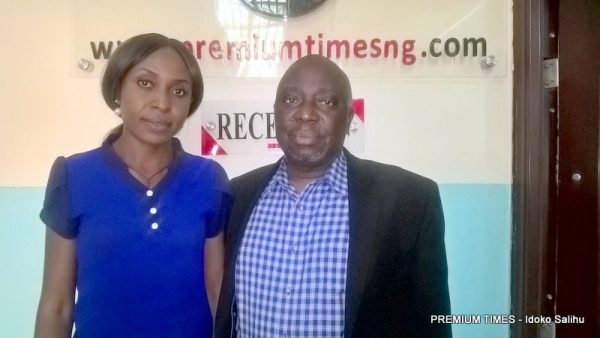
The publisher and journalist were detained for a number of hours before being granted bail, prompting massive outcry from the media community and activists across Nigeria. A number of petitions were sent to President Muhammadu Buhari decrying the spate of frequent attacks on the media by security forces and urging the President to help end the situation.
On January 25, 2017, Ms Ujunwa Atueyi, a journalist with The Guardian newspaper was arrested, detained for hours in a vehicle and forced to delete pictures she had taken of a raid on motorists at a Lagos bus stop. Atueyi was arrested after the policemen saw her capture a scene in which they (the police) were beating a young man. The journalist was interrogated before being forced to delete the pictures she had taken.
The Nigerian police carried out another raid on January 29, this time on the printing house of the Biafra Times newspaper. The editor of the newspaper, Peter Eke and nine others were arrested. Fatai Owoseni, the Lagos State Police Commissioner, told the media on January 30, that the suspects were arrested for “an offence punishable under the Criminal Law of Lagos State,” without giving details. He said the printing press has been shut and the premises are being monitored, adding that the suspects would be charged to court as soon as detectives finished interrogating them.
Media Suspensions Lifted in Benin and Cote d’Ivoire
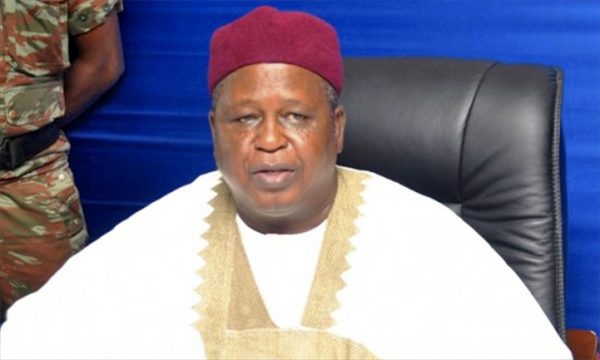
In Benin, the media regulatory body, Haute Autorité de l’Audiovisuel et de la Communication (HAAC) on January 26, lifted its ban on privately-owned Soleil FM, Eden TV and E-Télé. The three were among seven media organisations that the regulatory body had suspended on November 28, 2016 for violating licensing conditions.
In Cote d’Ivoire, the LG Infos daily newspaper returned to the newsstand after the media regulator, Conseil national de la Presse (CNP) lifted a ban on the newspaper. The newspaper had been suspended for seven editions in December 2016 for publishing what the regulator deemed to be “false information” about former first lady Simone Gbagbo, and aide to her son and a former minister.
The MFWA welcomed the lifting of the media suspensions in both Benin and Cote d’Ivoire and called for increased professionalism on the part of media organisations, and non-restrictions and censorship on the part of media regulatory bodies.
Director General of Ivoirian State Broadcaster Reports Technicians to the Police

The good news about the lifting of suspension on the LG Infos newspaper in Côte d’Ivoire was, however, tempered with some other unpleasant development. Ahmadou Bakayoko, the Director General of the state broadcaster, Radiodiffusion Télévison Ivoirienne (RTI), reported six technicians of the station to the police after a 15-minute delay in the start of the prime-time evening TV news programme of Januray 27, 2017. Although the delay was due to technical reasons, Bakayoko accused the six technicians of “sabotage and undermining state security.” They were, therefore, summoned to report to the police for interrogation on a daily basis from January 31 to February 2.
Liberia Information Minister Abuses Female Journalist
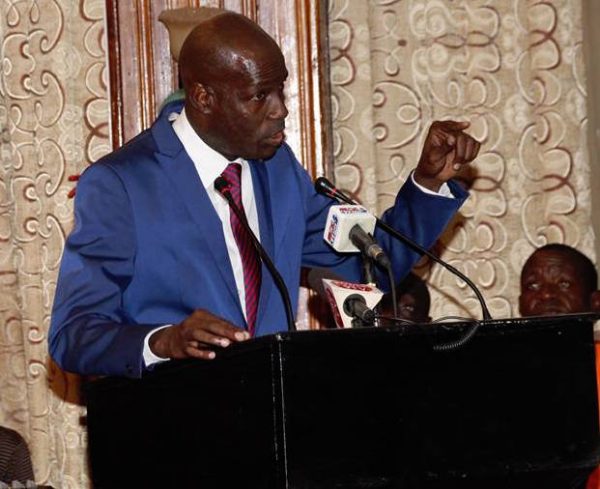
On January 23, Liberia’s Minister for Information Eugene Nagbe, verbally abused a female journalist Estelle Liberty Kemo, during a press conference resulting in several condemnations from multiple actors.
In response to a question from the journalist about a recent row between him and an opposition member of parliament, Moses Kollie, minister Nagbe angrily told the journalist “go and ask your boyfriend, Representative Moses Kollie.”
The response from the Minister was deemed offensive and abusive, and attracted wide condemnations including one from the Female Journalists Association of Liberia (FeJAL) who demanded prompt apology from the Minister.
Radio Stations Honoured in Ghana for Elections Coverage
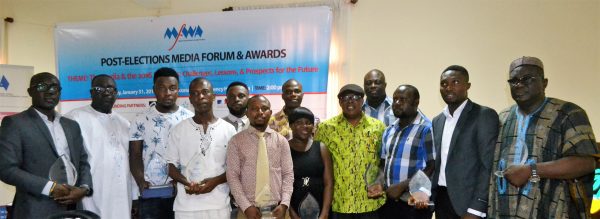 In Ghana, the MFWA honoured 13 radio stations from across the country that played a key role in reducing hate speech and other pro-violence campaigning during the country’s December elections. The 13 media organisations were honoured at a forum that brought together all stakeholders in the media sector to assess the performance of the media during the elections.
In Ghana, the MFWA honoured 13 radio stations from across the country that played a key role in reducing hate speech and other pro-violence campaigning during the country’s December elections. The 13 media organisations were honoured at a forum that brought together all stakeholders in the media sector to assess the performance of the media during the elections.
